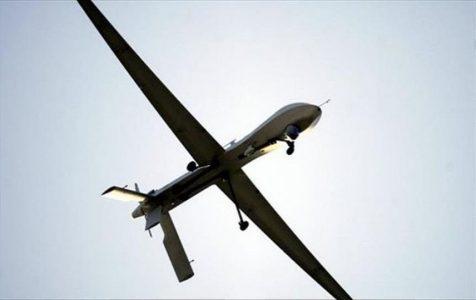
British Bangladeshi nationals ran ISIS drone programme
ISIS’s self-made lethal drone programme was reportedly procured by two British Bangladeshi brothers, a new Combating Terrorism Centre (CTC) report revealed yesterday.
ISIS’s access to drones was “shaped” by the brothers, who leveraged companies in the United Kingdom, Bangladesh and Spain which they established to “move funds, drones, and other dual-use components to and on behalf of the Islamic State”, the report entitled “The Islamic State and Drones: Supply, scale and future threats” revealed.
The drones were used for defensive and offensive operations, through a global and layered supply chain that involved purchases from more than 16 companies based in seven different countries.
“At least one of these brothers also played a central role in helping to create and develop Dawatul Islam Bengal, the Islamic State’s local affiliate in Bangladesh,” the report claimed.
ISIS overcame technical and cost asymmetries to develop novel weapons systems purely constructed from commercial drones. The inception of these drones directly altered the dynamics of the modern battlefield. “Given the Islamic State’s penchant for innovation, it would be a mistake to underestimate the organisation and how the group could serve as an inspiration for other terrorists and or nation-states and proxy groups that are developing their own hybrid warfare strategies,” the report said.
Daesh’s self-made lethal drone programme was reportedly procured by two British Bangladeshi brothers, a new Combating Terrorism Centre (CTC) report revealed yesterday.
Daesh’s access to drones was “shaped” by the brothers, who leveraged companies in the United Kingdom, Bangladesh and Spain which they established to “move funds, drones, and other dual-use components to and on behalf of the Islamic State”, the report entitled “The Islamic State and Drones: Supply, scale and future threats” revealed.
The drones were used for defensive and offensive operations, through a global and layered supply chain that involved purchases from more than 16 companies based in seven different countries.
“At least one of these brothers also played a central role in helping to create and develop Dawatul Islam Bengal, the Islamic State’s local affiliate in Bangladesh,” the report claimed.
Daesh overcame technical and cost asymmetries to develop novel weapons systems purely constructed from commercial drones. The inception of these drones directly altered the dynamics of the modern battlefield. “Given the Islamic State’s penchant for innovation, it would be a mistake to underestimate the organisation and how the group could serve as an inspiration for other terrorists and / or nation-states and proxy groups that are developing their own hybrid warfare strategies,” the report said.
But at least four counter-terrorism events which occurred in a “coordinated fashion in four countries, within hours or days of each other” disrupted the drone programme.
The first setback for Daesh was the death of Siful Haque Sujan, a Bangladeshi Daesh operative who was killed in an air strike back in December 2015. Sujan played a major role in the establishment of Daesh’s affiliate in Bangladesh.
Before joining Daesh, Sujan and his older brother, Ataul Haque Sobuj, ran a number of IT companies in the United Kingdom, Bangladesh and Spain. The report claims that the two brothers and co-conspirators used them as front companies to move money and products for Daesh.
The second event was the arrest of Abdul Samad in the United Kingdom, a friend of Sujan and Sobuj, who served as a director of one of the companies run by the two brothers. Five others associated with the company in Bangladesh were arrested at the same time, in the capital Dhaka. Authorities believe the operatives in Bangladesh used the offices to move products and money for Daesh in Syria and Iraq.
The fourth counter-terrorism event took place in the United States with the arrest of Mohamed Elshinawy on terrorism charges. Elshinawy received some $8,000 from Sujan and Sobuj to conduct an attack on behalf of Daesh in the US. Elshinawy was sentenced to 20 years in prison earlier this year.
Some 850 British nationals have reportedly travelled to Syria and Iraq’s conflict landscape, with an estimated 425 returning.
Source: Middle East Monitor





